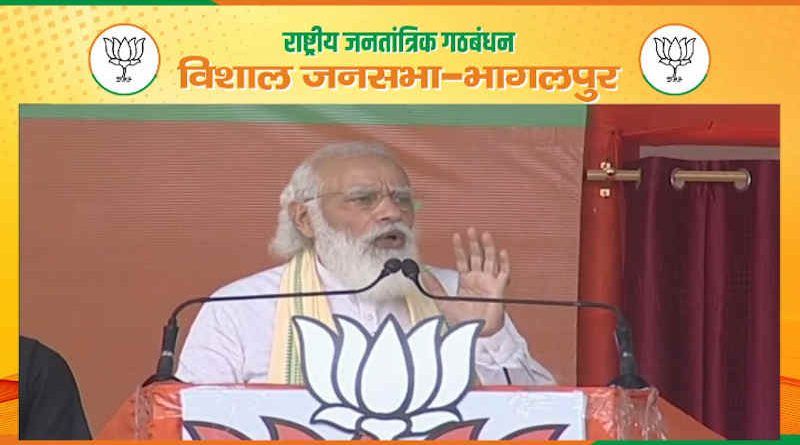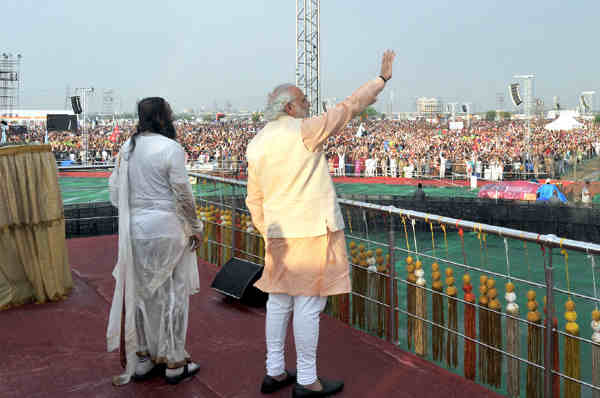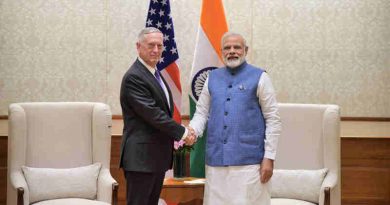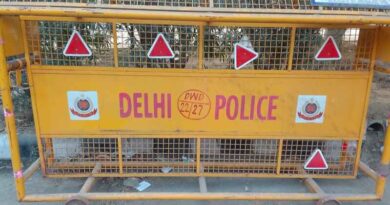Opposition Leaders Are Misleading Protesting Farmers: PM Modi
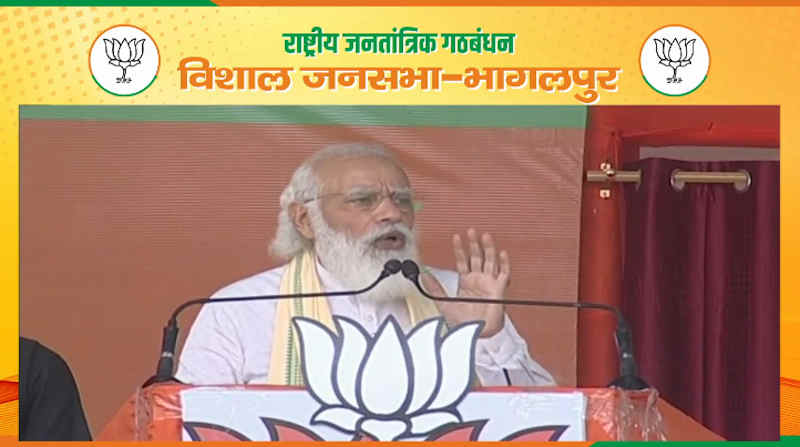
Instead of accepting the principles of a free-market system, most farmers in India are dependent on government dole in the form of MSP.
By Rakesh Raman
The Prime Minister (PM) of India Narendra Modi has accused the opposition parties of misleading farmers who are protesting across the nation – but mainly in Punjab – against the new farm laws.
PM Modi was addressing a political rally Friday (October 23) at Bhagalpur in Bihar where Assembly election is scheduled to take place between 28 October and 7 November, 2020.
Currently, thousands of farmers in India are protesting on roads against the Modi government and the new farm laws. Farmers fear that these laws will deprive them of their farming rights and they will lose their lands which will be grabbed by Modi’s capitalist friends.
Although the farmers across the nation are protesting against Modi government’s decision, the epicenter of the movement is Punjab which contributes the lion’s share to the Indian agriculture sector.
MSP FACTOR
Actually, a total reformation of the decaying Indian agriculture sector is required, but some mischievous political leaders are asking farmers to focus their demands only on the minimum support price (MSP) – a price guaranteed by the government to buy some of the crops.
PM Modi said that opposition is misleading the farmers on MSP while his government has introduced new schemes for the benefit of the farmers. The Modi government also claims that over the past six years of Modi’s rule in India, the MSP on crops was progressively raised by the government.
The minimum support prices – which are fixed by the government to protect the farmers against excessive fall in price during bumper production years – are announced at the beginning of the sowing season for certain crops. These prices are based on the recommendations of the Commission for Agricultural Costs and Prices (CACP).
Farmers complain that despite announcing MSPs, the government fails to implement the MSP regime for almost all of their crops. As a result, they have to throw their crops in distress sales at prices which are far below the MSPs.
Instead of accepting the principles of a free-market system, most farmers in India are dependent on government dole in the form of MSP. As farmers are mostly illiterate, they use archaic farming techniques to work at significantly low productivity levels, which do not give sufficient crop yield. So, they want unjustified government protection.
OBSOLETE FARMING
According to the most recent data available, the average yield per hectare for rice in India in the year 2017 was just 3.85 tonnes as compared to 9.82 tonnes in Australia. The wheat production is worse. The average yield of wheat per hectare was only 2.8 tonnes which is far less than 8.9 tonnes in Netherlands. The farm output is equally bad for other crops.
India’s crumbling crop marketing infrastructure and low farm production levels are also increasing hunger levels in the country. This is reflected in the Global Hunger Index 2020 where India staggers with a poor rank of 94 among 107 countries and falls in the ‘serious’ hunger category.
The Indian farmers failed to adopt scientific farming techniques and since they use excessive synthetic fertilisers and pesticides, their crops are virtually poisonous which cannot be exported in other countries. While environmental hazards are increasing in India, soon climate change will also prove to be extremely disastrous for the Indian agriculture sector.
Although organic farming which uses clean and green production methods is an option to earn significantly higher prices for farm products in the market, the farmers never tried to evolve. Moreover, because of their illiteracy, farmers could not establish technology-based supply chain management (SCM) and e-commerce systems to run farming as lucrative business enterprises.
The World Bank has observed that the current agricultural practices in India are neither economically nor environmentally sustainable and India’s yields for many agricultural commodities are low. The World Bank adds that poorly maintained irrigation systems and almost universal lack of good extension services are among the factors responsible for the downturn in the Indian agriculture market.
POLITICS IN FARMING
Since the Indian governments (State as well as Central) are also full of uneducated politicians and unskilled bureaucrats who do not understand the evolving business dynamics in the world, they could never educate the farmers about the contemporary farming models.
A few self-styled farm activists are also participating aggressively in the ongoing farmers’ protests in different parts of India. But with little knowledge of farming they are also misleading the farmers. Their only aim is to exploit the directionless uprising of the farmers for their own political gains.
The cunning activists as well as the opposition political parties know that in the current political scenario, it will be difficult to defeat Modi and his party even in the 2024 Lok Sabha election. So, instead of helping farmers with the best agricultural practices, they are inciting them to protest against the Modi government.
It is reported that currently there are 145 million (14.5 crore) farmer families in India. The All India Kisan Sangarsh Coordination Committee (AIKSCC) is a pan-Indian umbrella organization comprising 250 farmers’ organizations. Thus, farmers represent a massive vote bank that can be mobilized to win any election – including the Lok Sabha election – in India.
Although the Indian opposition parties are aspiring to achieve political victories by ostensibly showing their support to farmers, the truth is that today there is no leader who is capable of translating the farmers’ struggle into electoral wins. Therefore, the farmers’ protests as well as their woes will persist. Sad but true.
By Rakesh Raman, who is a national award-winning journalist and social activist. He is the founder of a humanitarian organization RMN Foundation which is working in diverse areas to help the disadvantaged and distressed people in the society.

